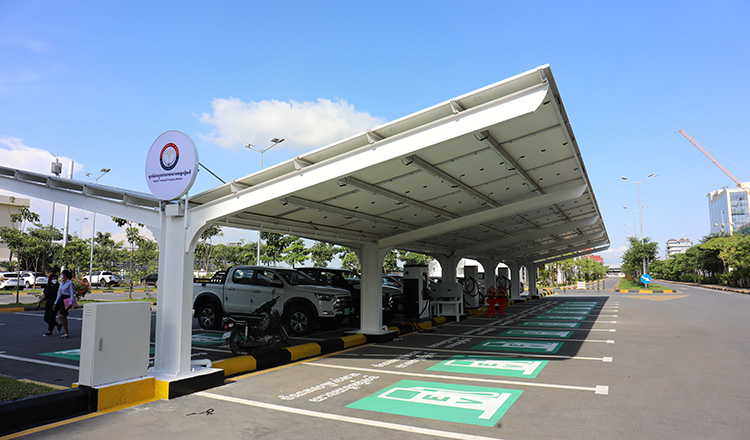How a Charger Module Enhances the Efficiency of EV Charging Stations
The rapid growth of electric vehicles (EVs) worldwide has created an increasing demand for efficient, reliable, and scalable charging infrastructure. Among the many components that make EV charging possible, the charger module plays a critical role in ensuring the stability and performance of charging stations. By converting and managing power effectively, it enhances both user experience and operational efficiency for charging providers.
In this article, we will explore what a charger module is, how it functions, and why it is essential for the future of EV charging stations.
What is a Charger Module?
A charger module is a key power conversion unit integrated into EV charging stations. Its main function is to convert alternating current (AC) from the grid into direct current (DC) that can be safely and efficiently delivered to an electric vehicle’s battery. This process ensures the battery receives the correct voltage and current, preventing damage while optimizing charging speed.
For those looking to understand more about its advanced role, modern solutions like the Charger Module for EV Charging Station demonstrate how innovative designs contribute to faster, more reliable, and energy-efficient charging infrastructure.
Key Functions of a Charger Module
The charger module performs several critical functions within an EV charging station, including:
1. Power Conversion
The primary role of the charger module is to convert AC power into DC power. EV batteries cannot store AC power directly, making this conversion essential for every charging session.
2. Voltage and Current Regulation
Charger modules regulate voltage and current to match the requirements of the EV battery. By ensuring proper regulation, the system avoids overcharging, overheating, or undercharging, which can extend the battery’s life.
3. Energy Efficiency
High-quality charger modules are designed to maximize power conversion efficiency, reducing energy loss during the charging process. This not only lowers operating costs but also supports sustainable energy use.
4. Scalability for High-Demand Applications
In large charging stations, multiple charger modules can be connected in parallel to meet higher power demands. This modular approach allows operators to scale up infrastructure as EV adoption increases.
Importance of Charger Modules in EV Charging
The role of charger modules goes beyond basic power conversion. They are at the heart of delivering seamless charging experiences and enabling the transition to widespread EV adoption.
Ensuring Faster Charging
Charger modules capable of handling high power outputs reduce charging times significantly, making EVs more convenient for daily use. Faster charging supports the growing demand for public and fleet charging stations.
Improving Reliability and Safety
Advanced charger modules include safety features such as short-circuit protection, overload prevention, and thermal management systems. These features ensure safe operation for both vehicles and charging infrastructure.
Supporting Smart Grid Integration
Modern charger modules are often designed to communicate with grid systems. This allows for smart load balancing, peak shaving, and integration with renewable energy sources, making them crucial for sustainable energy ecosystems.
Advantages for Charging Station Operators
For operators, charger modules offer several benefits:
- Reduced Maintenance Costs: Modular systems are easier to service, as faulty units can be replaced without shutting down the entire station.
- Energy Savings: High-efficiency modules minimize power losses, cutting electricity bills.
- Future-Proofing: Modular scalability ensures operators can expand charging capacity as EV usage grows.
Looking Ahead: The Role of Charger Modules in Next-Gen EV Infrastructure
As EV technology continues to evolve, charger modules will play an increasingly central role in shaping the charging landscape. With advances in ultra-fast charging, grid connectivity, and renewable energy integration, next-generation charger modules will enable more robust, sustainable, and consumer-friendly charging solutions.
Conclusion
The charger module is the backbone of any EV charging station, ensuring efficient power conversion, safety, and scalability. As the world transitions to cleaner transportation, investing in advanced charger modules is essential for meeting growing demand and supporting sustainable infrastructure. By enhancing efficiency and reliability, charger modules not only benefit EV owners but also empower operators to deliver future-ready charging services.





